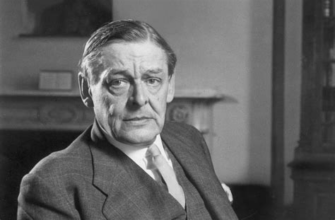In this remarkable exploration, prepare to embark on a captivating expedition into the enigma of one of the most influential figures in American literature. Delve deep into the intricate tapestry of Langston Hughes' existence, unraveling the threads that wove together his remarkable talent and profound impact.
With each step through the corridors of time, we will uncover the extraordinary essence of Hughes, a man whose words echoed with the struggles and dreams of a nation. Through his impassioned poetry and evocative prose, Hughes gifted the world with a voice that encapsulated the spirit of a generation, breathing life into the forgotten realities and resilient hopes of the African American community.
Through vivid imagery and poignant metaphors, Hughes transported readers to the harrowing streets of Harlem, encapsulating the joys, sorrows, and triumphs of a community fighting for visibility and justice. His words danced on the page, intermingling with the pulsating rhythms of jazz and blues, giving birth to a literary movement that celebrated the cultural heritage of African Americans.
Exploring the Early Years of Langston Hughes

Delving into the formative stages of Langston Hughes' life, this section takes a captivating journey through the early experiences and influences that shaped the renowned poet and writer. By uncovering the roots of his creative spirit and exploring the pivotal moments that ignited his passion for literature, we gain a deeper understanding of the person behind the art.
A Childhood Spurred by Curiosity
In his youth, Langston Hughes was driven by an insatiable thirst for knowledge and a curiosity that knew no bounds. From a tender age, he possessed an innate ability to observe the world around him, finding inspiration in every interaction, event, and emotion. This insistent inquisitiveness propelled him on a lifelong quest for understanding and self-expression, leading him to discover the power of words and their ability to convey profound truths.
An Influential Family
Within Langston Hughes' own family, a rich tapestry of influences played a significant role in shaping his artistic identity. From his strong-willed grandmother who instilled in him an appreciation for African American culture and heritage, to his world-traveling, politically engaged mother who ignited his interest in social justice, familial connections infused his early years with a diverse range of perspectives and experiences. These invaluable relationships laid the foundation for his nuanced understanding of identity, race, and the human condition.
Encounters with the Written Word
Langston Hughes' encounter with literature was a revelatory moment that forever changed the trajectory of his life. Through his voracious consumption of books, poetry, and plays, he discovered his unique voice and a profound love for the written word. Literature became his solace, his refuge, and his passion. From the works of celebrated writers to the world of Harlem Renaissance, each encounter with the written word fueled his desire to become an artist, shaping his early aspirations and paving the way for his future literary accomplishments.
A Mosaic of Early Experiences
As we piece together the fragments of Langston Hughes' early years, a mosaic of experiences emerges, showcasing the interconnectedness of his upbringing, familial influences, and encounters with literature. This tapestry of encounters and experiences would become the fertile ground from which his artistry would blossom, forever etching his name in the annals of American literary history.
An Exploration of Hughes' Childhood, Upbringing, and Early Influences
In this section, we delve into the formative years of one of the most influential and celebrated African American poets of the twentieth century. Through a comprehensive exploration of Langston Hughes' childhood, upbringing, and early influences, we aim to shed light on the factors that shaped his remarkable artistic career.
Langston Hughes' early life was imbued with an array of experiences that left an indelible impact on his creative spirit. Growing up in the heyday of the Harlem Renaissance, he was exposed to a vibrant cultural scene that inspired a deep appreciation for music, literature, and visual arts. It was within this artistic milieu that Hughes' innate talent began to blossom.
The environment in which Hughes was raised also played a pivotal role in shaping his worldview and artistic expression. Coming from a modest background, he grew up amidst the realities of racial inequality and social injustices. These early experiences instilled in him a profound sense of empathy and a desire to use his art as a means of giving voice to those who had been marginalized and silenced.
Hughes' upbringing in the Midwest, particularly his time spent in Kansas and Illinois, further influenced his artistic development. The rural landscapes, the tight-knit communities, and the struggles of working-class families fostered a deep connection to the lives of everyday people. These experiences served as a wellspring of inspiration for his poetry, often celebrating the beauty and resilience found in ordinary lives. | In addition to his surroundings, Hughes' upbringing was shaped by the individuals he encountered during his formative years. His parents, James Nathaniel Hughes and Carrie Mercer Langston, both played significant roles in nurturing his love for literature and encouraging his artistic pursuits. Furthermore, influential figures such as W.E.B. Du Bois and Booker T. Washington, whom Hughes encountered through his voracious reading, provided him with intellectual guidance and helped shape his perspectives on race, identity, and social justice. |
As we explore these formative influences, it becomes evident that Langston Hughes' childhood and upbringing served as the fertile ground from which his lifelong commitment to artistic expression and social commentary emerged. The multifaceted experiences, diverse cultural influences, and personal relationships that shaped his early years laid the groundwork for an extraordinary career that would redefine the landscape of American literature.
Uncovering Langston Hughes' Journey as a Writer

Delving into the depths of Langston Hughes' literary endeavors offers a captivating exploration of his evolution as a wordsmith. This section unveils the intricate path embarked upon by Hughes, tracing his transformation from a burgeoning writer to an influential figure in American literature.
Exploring the early years of Hughes' career reveals a young writer grappling with finding his voice and artistic identity. Through his poignant poetry and compelling essays, Hughes navigated themes of identity, race, and social inequality, utilizing language as a powerful tool to shed light on the African American experience. His words resonated with readers from all walks of life, capturing the essence of an era fraught with both pain and hope.
As Hughes' career progressed, his writing style evolved, displaying a remarkable aptitude for experimentation and innovation. His mastery of various literary forms, including poetry, short stories, and plays, showcased his versatility as an artist and his ability to engage with different audiences. From the rhythmic cadence of his jazz-inspired poetry to the raw emotion depicted in his prose, Hughes' writing transcended boundaries and left an indelible mark on American literature.
Uncovering Hughes' journey as a writer also involves acknowledging the cultural and historical influences that shaped his work. Drawing inspiration from the Harlem Renaissance, a vibrant cultural movement at the time, Hughes immersed himself in the artistic milieu of the era, collaborating with fellow artists and intellectuals who shared his passion for social justice. This collaboration fueled his creative spirit and propelled him to new heights, enabling him to craft a narrative that both celebrated the beauty of African American culture and exposed the injustices faced by its community.
In conclusion, delving into Langston Hughes' journey as a writer reveals a man dedicated to using the power of words to effect change. Through his unwavering commitment to authenticity and his ability to capture the essence of the human experience, Hughes left an enduring literary legacy that continues to captivate readers today.
Examining His Literary Career, Key Works, and Writing Style
In this section, we will delve into the remarkable literary journey of Langston Hughes, exploring his influential body of work, notable literary accomplishments, and distinctive writing style. Throughout his career, Hughes exhibited a profound understanding of the human experience, masterfully capturing emotions, experiences, and struggles through his powerful and evocative words.
To comprehend the scope of Hughes' literary career, it is crucial to delve into his key works. Notable among them is "The Negro Speaks of Rivers," a poem that symbolizes the rich history and resilience of African Americans. Hughes also made significant contributions to the Harlem Renaissance, a flourishing artistic and intellectual movement in the 1920s. His collection of poetry, "The Weary Blues," received critical acclaim, effectively cementing his place as a prominent voice of the era.
When examining Hughes' writing style, the richness of his language and ability to convey deep emotions becomes evident. His works often featured accessible and colloquial language, striking a chord with readers from all backgrounds. Through his use of vivid imagery and poetic devices such as metaphors and similes, Hughes painted a vivid picture of the African American experience, allowing readers to empathize and connect with his words on a profound level.
- His poetry often celebrated the beauty of everyday life, highlighting the struggles and triumphs of marginalized communities.
- Additionally, Hughes' keen observations on racial inequality and social injustices challenged societal norms and sparked conversations on racial identity and equality.
- Hughes' ability to capture and represent different voices and perspectives added depth and authenticity to his writing, making his work relatable and resonant even decades later.
- Furthermore, his commitment to portraying the realities of life for African Americans during a time of segregation and discrimination showcases the social and political importance of his body of work.
Through a thorough examination of Hughes' literary career, key works, and writing style, it becomes evident that his contributions to literature and society were immense. His poetic genius and dedication to representing the lives and struggles of African Americans have solidified his enduring legacy, making him a beloved and revered figure in American literature.
Exploring Langston Hughes' Impact on the Harlem Renaissance

In this section, we delve into the significant influence of Langston Hughes on the vibrant cultural and artistic movement known as the Harlem Renaissance. This era, characterized by a flourishing of African-American literature, music, art, and intellectual thought, was profoundly shaped and propelled by Hughes' remarkable contributions.
Literary Contributions Langston Hughes, with his poetic genius and powerful prose, played a pivotal role in the literary landscape of the Harlem Renaissance. His works, rich in vivid imagery and deeply rooted in the African-American experience, gave voice to the struggles, dreams, and hopes of his community. With raw authenticity and unbridled passion, Hughes captured the essence of Harlem and its people, showcasing their resilience and celebrating their cultural heritage. | A Cultural Icon Beyond his literary prowess, Langston Hughes became a cultural icon during the Harlem Renaissance. His words resonated with people from all walks of life and brought issues of race and identity to the forefront of public consciousness. As a leading figure of the movement, Hughes used his platform to challenge prevailing stereotypes, advocate for social justice, and inspire generations to embrace their African-American heritage with pride. |
Musical Collaborations Langston Hughes' artistic vision extended beyond the written word. He collaborated with renowned jazz musicians and composers, such as Duke Ellington and Charles Mingus, to create groundbreaking works that fused literature and music. Through these collaborations, Hughes bridged the gap between various art forms and blurred the lines between poetry, storytelling, and musical expression. | Legacy and Lasting Influence The legacy of Langston Hughes continues to reverberate through the realms of poetry, literature, and social activism. His impact on the Harlem Renaissance cannot be overstated, as his writings and activism inspired a whole generation of African-American artists and intellectuals. Hughes' ability to capture the nuances of the human experience, coupled with his unwavering commitment to social justice, solidifies his position as one of the most influential figures of the 20th century. |
An exploration of Hughes' impact on the cultural and artistic movement
Within the realm of cultural and artistic expression, Langston Hughes made indelible contributions that left an indelible mark on the landscape of American creativity. Through his words and artistic endeavors, Hughes not only captured the essence of African American life and experiences, but also paved the way for a renewed appreciation and understanding of the African American cultural heritage.
In his literary works, Hughes skillfully weaved together themes of identity, race, and social inequality, resonating with readers from all walks of life. Through his poetry, prose, and plays, he confronted the struggles and triumphs of marginalized communities, shining a light on their resilience and resilience in the face of adversity. Hughes' writings served as a catalyst for change, influencing and inspiring subsequent generations of artists, writers, and activists.
- One of Hughes' notable contributions was his role in the Harlem Renaissance, a cultural movement that flourished in the 1920s and 1930s. As a prominent figure of this movement, he sought to showcase the beauty and richness of African American culture through his poetry and prose.
- Additionally, Hughes' unwavering commitment to portraying the realities of the African American experience set a new standard for authenticity in literature. His works confronted racial injustice head-on, challenging societal norms and demanding equality for all.
- Furthermore, Hughes' exploration of African American folklore and oral traditions brought these often overlooked aspects of culture to the forefront. By incorporating elements of African American music, dance, and storytelling into his works, Hughes paved the way for a more inclusive and diverse artistic landscape.
- Hughes' impact extended beyond literature and into the realm of activism. Through his writings and public speeches, he advocated for social and political change, using his platform to amplify the voices of those who had long been silenced.
- Lastly, Hughes' artistic versatility allowed him to excel in multiple mediums. From poetry to novels, from plays to essays, his body of work showcases the breadth and depth of his artistic genius, making him a true Renaissance man of his time.
In conclusion, Langston Hughes' contributions to the cultural and artistic movement were far-reaching and transformative. His ability to capture the essence of African American life, challenge societal norms, and advocate for change made him a force to be reckoned with in the realm of creativity. Hughes' impact continues to resonate today, inspiring new generations of artists to explore their cultural identities and contribute to the ever-evolving landscape of artistic expression.
Revealing Langston Hughes' Advocacy for Civil Rights

In this section, we delve into Langston Hughes' profound commitment to the fight for civil rights, as he tirelessly used his artistic talents to shed light on the injustices faced by African Americans during the turbulent era of racial discrimination in the United States.
To truly grasp Hughes' dedication to the cause, it is essential to examine the powerful themes and messages he conveyed through his poetry, plays, essays, and other literary works. Through his art, Hughes fearlessly exposed the social inequalities and systemic racism that permeated every aspect of American society, challenging the status quo and advocating for equality and justice.
One notable example of Hughes' unwavering advocacy for civil rights can be seen in his seminal poem, "Harlem," where he explores the deferred dreams and hopes of African Americans in a racially oppressive society. Through vivid metaphors and poignant imagery, Hughes captures the frustrations and aspirations of an entire community, urging society to confront the consequences of racial injustice. This poem, along with a multitude of others, served as a catalyst for social change, encouraging dialogue and introspection.
| Aspect | Examples |
|---|---|
| Literary Activism | Hughes' involvement with the Harlem Renaissance |
| Political Engagement | His support for the anti-lynching movement |
| Collaboration | Working alongside prominent civil rights leaders, such as W.E.B. Du Bois |
Furthermore, Hughes' activism extended beyond his literary contributions. He actively participated in various civil rights organizations and used his platform to amplify the voices of marginalized communities. Hughes' unwavering dedication to the cause, his ability to captivate audiences with his eloquent words, and his commitment to fostering societal change have solidified his legacy as a prominent advocate for civil rights.
In conclusion, this section reveals the astounding depth of Langston Hughes' advocacy for civil rights. Through his profound literary works and active involvement in social and political movements, Hughes boldly fought against racial discrimination and championed equality for all. He remains an enduring figure in the struggle for civil rights, inspiring generations to challenge injustice and strive for a more inclusive society.
Exploring Langston Hughes' Advocacy for Racial Equality and Social Justice
Delving into the multifaceted impact of Langston Hughes' work reveals a profound commitment to the advancement of racial equality and social justice. His literary contributions served as powerful means of protest, shedding light on the struggles faced by African Americans in the early 20th century. Hughes infused his poetry and prose with vivid imagery, personal experiences, and a fierce passion for challenging societal norms.
Promoting Racial Equality: Hughes' writings served as a catalyst for exposing the harsh realities of racial discrimination and advocating for its eradication. Diving into the depths of racial identity and the African American experience, he fearlessly depicted the systemic inequities that plagued society. By doing so, Hughes brought vital issues to the forefront, challenging readers to confront their own biases and understand the urgency of reshaping a more equitable world.
A Voice for Social Justice: In addition to his unwavering dedication to racial equality, Hughes championed broader social justice causes. He explored themes such as economic inequality, labor rights, and gender roles, giving a voice to marginalized individuals and communities. Through his writing, Hughes highlighted the interconnectedness of social justice issues, emphasizing the need for collective action and compassion.
In conclusion, Hughes' role in the fight for racial equality and social justice cannot be understated. His literary prowess captivated audiences, leaving an indelible mark on the collective consciousness. Through his poignant words, Hughes reshaped societal narratives, paving the way for future generations to continue the pursuit of a more just and inclusive society.
Exploring Themes and Motifs in the Poetry of Langston Hughes

In this section, we delve into the profound and recurring ideas that shape the poetic works of Langston Hughes, offering a glimpse into the essence of his literary creations. Through his evocative words and vibrant imagery, Hughes explores various themes and motifs that resonate with the human experience.
- Racial Identity and African American Culture: Hughes masterfully captures the struggles, triumphs, and complexities of being an African American in a racially divided society. His poetry celebrates the beauty and resilience of Black culture while shedding light on issues of racial inequality and the African American quest for freedom and equality.
- Social Justice and Equality: Hughes raises his voice against social injustices and advocates for equality and justice for all. Through his impassioned words, he exposes the harsh realities of discrimination, poverty, and oppression, aiming to inspire societal change and encourage empathy and compassion.
- Identity and Self-discovery: Hughes explores the search for one's identity and the journey of self-discovery. His poetry delves into the complexities of personal growth, introspection, and the quest for belonging. Through his artistry, he invites readers to question their own identity and reflect on the paths they take to find themselves.
- Humanity and Empathy: Hughes's poetry celebrates the universal humanity that connects us all, emphasizing the importance of compassion, understanding, and empathy. He encourages readers to recognize the shared experiences that transcend race, ethnicity, and social backgrounds, fostering a greater sense of unity and solidarity.
- The Beauty of Everyday Life: Within the ordinary and mundane experiences, Hughes uncovers the extraordinary beauty of everyday life. He finds inspiration in the simple moments, capturing the essence of joy, love, hope, and resilience found in the human experience.
Through his mastery of language and poetic techniques, Langston Hughes weaves together these themes and motifs, offering a thought-provoking and captivating exploration of the human condition. His poetry serves as a powerful testament to the enduring legacy of his artistry and the timeless relevance of his words.
FAQ
What is the book "Unveiling the Life and Artistry of Langston Hughes: A Captivating Biography" about?
The book is a biography that uncovers the life and creative journey of Langston Hughes, delving into the details of his personal experiences and his contributions to the field of literature.
How does Langston Hughes' life influence his work?
Langston Hughes drew inspiration from his personal experiences as an African-American living in the early 20th century. His poems, essays, and plays often reflect the themes of racial injustice, identity, and the African-American experience, showcasing the impact of his life on his work.
What makes Langston Hughes' artistic style unique?
Langston Hughes had a distinct writing style that combined elements of jazz and blues with traditional poetic forms. His use of vernacular language and incorporation of African-American culture in his work separated him from his contemporaries, making his artistic style truly unique.
What were some major milestones in Langston Hughes' career?
Langston Hughes achieved several significant milestones throughout his career. One notable accomplishment was the publication of his first poetry collection, "The Weary Blues," in 1926, which garnered critical acclaim. Another milestone was his selection as the valedictorian of his high school class, highlighting his early academic success and determination.
How did Langston Hughes contribute to the Harlem Renaissance?
Langston Hughes played a crucial role in the Harlem Renaissance, a cultural and intellectual movement in the 1920s. Through his literary works, he became a prominent figure who captured the spirit and experiences of African-Americans during this period. His writings became a cornerstone of the movement, providing a voice for the black community.
What is the main focus of the biography "Unveiling the Life and Artistry of Langston Hughes"?
The main focus of the biography is to provide a comprehensive account of Langston Hughes' life and artistic career, shedding light on his upbringing, experiences, and contributions to literature.
Who is Langston Hughes and why is he considered an important figure?
Langston Hughes was a renowned African-American poet, novelist, playwright, and social activist. He is considered an important figure due to his significant contributions to the Harlem Renaissance and his powerful portrayal of African-American life and culture through his writings.



